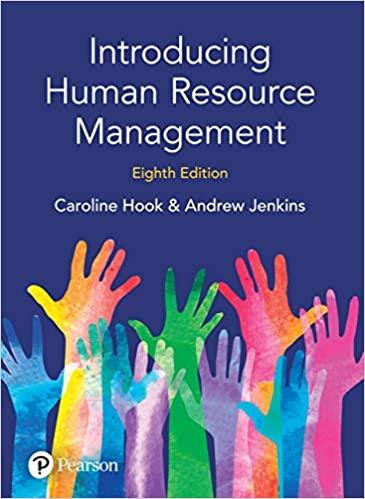Last week an e-mail went round the office touting for suggestions on ways to improve our performance
Question:
Last week an e-mail went round the office touting for suggestions on ways to improve our performance appraisal system. My suggestion is dead easy and dirt cheap: get rid of the whole thing and replace it with nothing at all.
Normally, if I have any bright ideas about how this newspaper could be managed better, I propose them in private. It is not seemly to wash the Financial Times’ dirty linen in public. Yet when it comes to appraisals, the linen of every other company is covered with much the same filthy stains as ours, and so there seems no shame in suggesting a mass outing to the launderette.
Over the past 30 years, I have been appraised three dozen times – as banker, journalist and non-executive director. I’ve lived through the craze for long, complicated forms. I’ve also survived the informal fashion in which appraisals are called “career chats”
and where a bogus air of equality prevails. I’ve done appraisals across a table, on a sofa, even over a meal.
I’ve had them à deux and à trois – with a facilitator in tow.
But never have I learnt anything about myself as a result. I have never set any target that I subsequently hit. Instead I always feel as if I am playing a particularly dismal game of charades, with three disadvantages over the traditional parlour game. There is no dressing-up box; there is no correct answer to guess and it isn’t remotely fun. The norm is a harrowing hour’s conversation during which you are forced to swallow an indigestible mix of praise and criticism referring to long-ago events, which leaves you demotivated and confused on the most basic question: am I doing a good job? The resulting form is then put on file, making you feel vaguely paranoid, even though you know from experience how much attention will be subsequently paid to it: none whatsoever.
At least I’ve only had to suffer one side of the process. I have never – thank goodness – had to appraise anyone else, which must be even more tiresome as you have to perform the same operation with each underling in turn, wearily letting people believe they are doing more or less okay, because it’s too tiring to drop the bombshell that they aren’t doing okay at all.
I have a friend in a large company who spends an entire month each year appraising her team. She says the system has been “improved” so that she no longer sorts people into “exceptional performers”, “good performers” and so on. Instead she works through a list of mysterious attributes – such as “leverages mastery”
and “innovates holistically” – choosing three strengths and one development need (or weakness, as it was formerly known) for each.
She admits that this system – which applies to almost 100,000 people worldwide – is utterly idiotic. But when I suggest it be scrapped she looks shocked. “Out of the question,” she says. “That would be interpreted as us saying we don’t care about developing people.”
Not by everyone, it seems. Last week Samuel Culbert, a business school professor in California, went on US radio to say that all appraisal systems were total baloney. He thinks even less of them than I do. They were a throwback to the bad old days of management by objective, he said, and only persisted because they allow evil managers to hold employees down and because HR managers are like the.......
Questions 1. Critically evaluate these two articles which present two very different points of view.
2. What, in your view, are the strengths of article 1? What do you think are its weaknesses? What is the evidence for your views?
3. What, in your view, are the strengths of article 2? What do you think are its weaknesses? What is the evidence for your view?
4. Overall, to what extent do you agree with article 1 or 2? Can you support your view with any other evidence from reading, research or your own experience?
Step by Step Answer:

Introducing Human Resource Management
ISBN: 9781292230344
8th Edition
Authors: Caroline Hook, Andrew Jenkins





